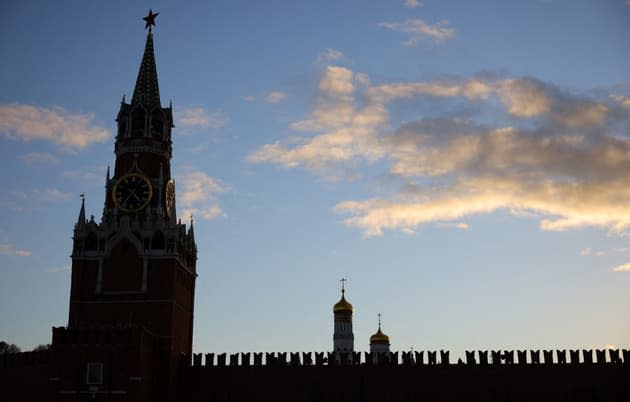A Russia that would save face by falling back on the lowest of its initial demands, a Ukraine emerging scarred from the conflict, deprived for a long time of any prospect of joining NATO but surrounded by new guarantees for its security. While the fourth round of Russian-Ukrainian negotiations aimed at concluding a ceasefire between the aggressor and the attacked opens this Tuesday in Istanbul, observers are beginning to hope that this new phase is the right one, the Kremlin seems to have eased its prior demands.
In any case, this is the impression that emerges from the revelations delivered this Monday by the Financial Times who says they have them from four sources close to this ultra-sensitive file. Thus, Russia would agree to see Ukraine eventually integrate the European Union, benefit from assurances for its security, delay further with regard to the recognition of its territories lost in 2014 on condition that it gives up joining NATO and to any development of nuclear weapons. However, nothing filters through on the Russian side and the Ukrainians still fear being led astray by interlocutors seeking only to gain time.
Official precautions
“Denazify”, “demilitarize”, “denuclearize”. Of the alpha, beta and omega pretexts put forward by Vladimir Putin to justify his invasion of Ukraine at dawn on February 24, only the third part would still be on the agenda. the Financial Times was able to speak with four people on the scent of the bilateral discussions which will know this Tuesday their fourth edition in Istanbul. And according to the echoes perceived by the British daily, Russia would have lost much of its luster in these negotiations, multiplying the concessions in order to preserve the certainty of a renunciation of Ukraine to join the Atlantic Alliance.
“All the subjects have been on the table from the start, but for each chapter there are unresolved clauses”, showers however David Arakhamia, head of the majority in the Rada, member of the Ukrainian delegation and the only participant in these negotiations for agreeing to waive anonymity.
On Monday, Dmitri Peskov, spokesperson for the Russian presidency, meanwhile told the Interfax news agency that on the side of his chieftaincy there was no “significant progress”.
NATO without NATO?
All the same, the tone of the Kremlin has changed judging by the testimonies of these apparently well-informed personalities. Vladimir Putin’s regime would cling only to Ukraine’s promises not to become a member of NATO, to refrain from hosting a foreign military base on its soil, to forget any development of a military nuclear program. In exchange, the counterparties appear numerous.
There is therefore no longer any question of demanding the “denazification” and the “demilitarization” of Ukraine – these absurd or unacceptable prerequisites for kyiv and which hampered the first discussions between belligerents, and above all it would obtain precious breaths of oxygen to his future. Russia would undertake to prepare an agreement affirming security and a duty of assistance to its neighbor across the Dnieper in the event of an attack – a document signed by it but also by France, Germany, the Italy, Germany, Poland, Turkey, Israel, China… and the United States. A kind of NATO Canada Dry so much does the proposal resemble article 5 of the North Atlantic Treaty which establishes the international organization. Moreover, Moscow plans to let go on another crucial point, by allowing its adversary to eventually integrate the European Union.
However, two points remain to be discussed. And the first is not the least: Russia still demands that Ukraine recognize its sovereignty over Crimea, as well as the legitimacy of the two separatist republics of Donbass. However, the Ukrainian plenipotentiaries will not recognize “other borders than those mentioned in the Declaration of Independence”, has already closed David Arakhamia to the Financial Times.
Good news, however: the obstacle would not be such as to block the negotiations and the sticking point postponed to a later meeting between Volodymyr Zelensky and Vladimir Putin. Just like the question of the protection of the Russian language in Ukraine, which Moscow also wishes to raise.
The fear of the gasworks
In addition to this appointment remaining in the state of hypothesis, two elements still encourage us to take our troubles patiently. Because even imagining the negotiators reaching a satisfactory agreement for the two parties soon, it would still be necessary to have the vote of the two parliaments then, on the Ukrainian side, its validation by a referendum promised – and repeatedly – by Volodymyr Zelensky to his people.
And kyiv has not finished stretching its back. Indeed, at a time when the international community is trying to get out of its dependence on Russian hydrocarbons, the scent of a possible gas plant still hangs in the air. As analyzed by Financial Timesthe confidence placed in the suddenly more flowing diplomacy of the Kremlin is very moderate as we fear that it is a delaying maneuver to gain time and recover before trying to relaunch on the front.
It must be said that here too, Russia seems to be on the back foot. Ukraine says it has recaptured Irpin, in the suburbs of its capital, held its enemy in Sumy at bay, cleared Mykolaiv to the south and now targets the liberation of Kherson. Assertions which perhaps owe much to a triumphalism of circumstances in which Ukraine has as much interest as its invader. One thing is certain in any case: the military (health) ride that Moscow had dreamed of at the end of February has already fizzled, 33 days later.

